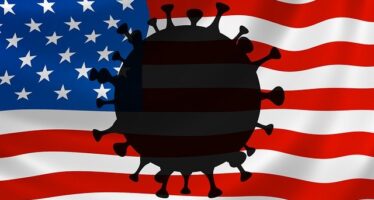Why We Sued to Represent Anwar Aulaqi
![]()
Anwar Aulaqi is a US citizen and Muslim cleric living somewhere in Yemen. The US has put him on our terrorist list and is trying to assassinate him. The Center for Constitutional Rights and the ACLU filed suit today so we can be pro bono lawyers for his father, Nasser Aulaqi, to stop the government from killing him.
We filed suit today challenge the US requirement that lawyers must seek permission from the government before we can provide free pro bono legal representation to a US citizen.
This case will not decide whether the US can legally assassinate US citizens or anybody else. This case is about whether the government can deny pro bono lawyers to US citizens who the government accuses of being terrorists. Once we win the right to be lawyers for his father, we will challenge the constitutionality of the US efforts to kill him.
The barrier to us becoming lawyers is a set of rules enacted by the Office of Foreign Assets Control (usually called OFAC) which is a part of the Treasury Department. US law essentially prohibits trading with the enemy in a time of war. OFAC regulations go further and prohibit lawyers from giving free representation to people on the terrorist list unless the government gives them permission. Violations trigger punishment of up to 20 years in jail and fines of up to one million dollars.
We think the US Constitution overrules these OFAC regulations. The First Amendment protects the right of non-profit lawyers and legal organizations to give pro bono legal representation to any US citizen. The Fifth Amendment protects the right of citizens to have that legal representation.
We know this is a controversial case. Representing someone accused of being a terrorist is a tough decision. CCR is a human rights organization. We condemn all killing of civilians for political purposes by any government or any organization or any individual.
What this case is really about is not Aulaqi but about our government disregarding the rule of law.
There are many reasons we can argue that premeditated killing by the government off the battlefield is illegal. The rule of law guaranteed by the US constitution binds even the President of the US and the military. Our constitutional system of checks and balances does not allow the executive branch of government to just decide in secret that they are going to kill people. The government certainly could not just execute him if he was in the US. The US would not allow other governments to come here and assassinate someone they opposed. And the US would never just fire drone strikes into the UK, China, Russia or Australia to kill someone. Yemen is over a thousand miles away from the battlefield of Afghanistan or Iraq. So why would anyone think it is legal to assassinate a US citizen in Yemen?
Despite these questions, Aulaqi has been the target of several unsuccessful drone strikes as the US military and CIA are actively trying to kill him.
These are all issues that should be decided in a court of law. That is why we are filing this suit.
His father, Nasser, said it best. If the government has proof his son violated the law, then they should charge him in public and let the law take its course.
If the government can find him to assassinate him, they can find him to bring him to justice.
The right to go to court to challenge the government is a core US value. It is important that we win the right to represent him no matter how controversial he is. Otherwise the government can deprive citizens of their right to a lawyer at the exact same time as they are trying to kill them. The courts should make these decisions and people deserve the right to have lawyers try to challenge the government. That is what we are after and that is fair.
Bill Quigley is legal director of the Center for Constitutional Rights and a law professor at Loyola University New Orleans. His email is quigley77@gmail.com
Related Articles
OMS advierte nuevo epicentro del coronavirus: Estados Unidos
![]()
Después de Europa, la Organización Mundial de la Salud (OMS) anunció este 24 de marzo que Estados Unidos se convertirá probablemente en el nuevo epicentro de la pandemia del coronavirus COVID-19
PM to opposition: Parliament to keep working despite boycott
![]()
TODAYSZAMAN Prime Minister Recep Tayyip Erdo?an Prime Minister Recep Tayyip Erdo?an on Thursday challenged Turkey’s main opposition party and the
Los intelectuales y el 15-M: una modesta propuesta para autoabolirnos
![]()
Luis Martín-Cabrera Rebelión Éste no es un artículo más sobre el futuro del movimiento 15-M, ni tampoco un diagnóstico teórico



